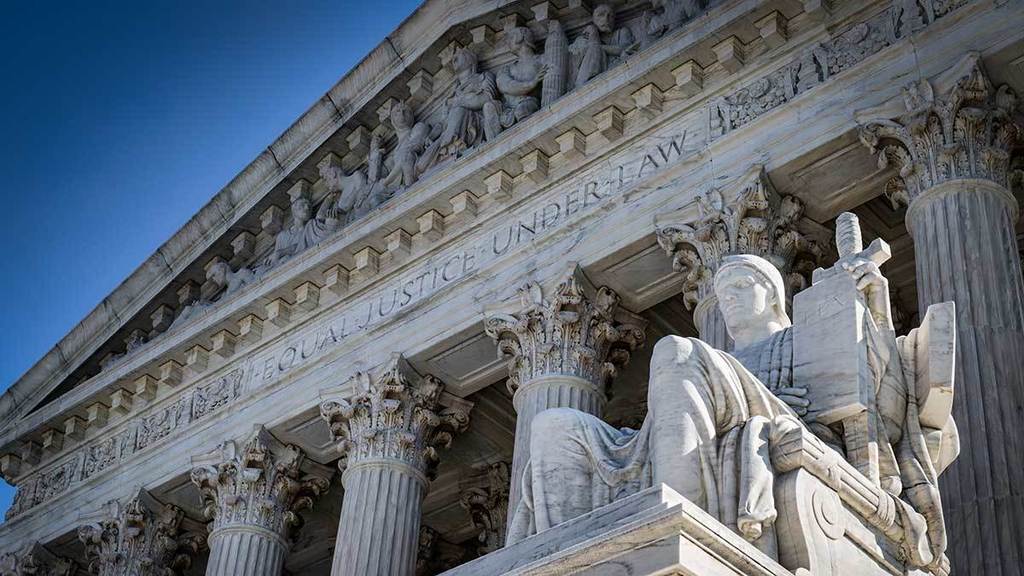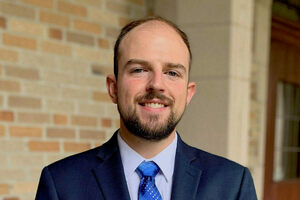Clerkships

Notre Dame Law School graduates have a strong record of securing judicial clerkships.
Each year, many Notre Dame Law graduates begin their careers as law clerks to federal and state judges; others decide to clerk after a period of practicing law.
Clerkships provide a way to learn about effective advocacy, sharpen legal reasoning and writing skills, gain exposure to a wide array of legal practice areas, and — particularly in the case of trial court clerkships — interact with local attorneys.
These positions are prestigious and competitive. Landing a clerkship can open doors for a young attorney. And, perhaps most importantly, clerking offers the opportunity to develop a lifelong mentoring relationship with a judge.
Resources for Current Students
Click on the button below for additional resources that are available to current students. (Notre Dame NetID and password are required for access.)
The available resources include the Notre Dame Law School Judicial Clerkship Manual, information about faculty clerkship experience (clerkship advisors), judges who have hired ND Law graduates, judges with Notre Dame connections, and more.
Questions? Contact: Heidi Baguer, Director of Career Development
Where ND Law Grads Clerk
Notre Dame Law School attracts students from all over the United States, and our graduates secure clerkships across a broad swath of the country in federal, state, and local courts.
Members of the Law School's 2017-2021 classes secured 192 judicial clerkships, including three at the U.S. Supreme Court.
| Clerkships obtained by 2018-2022 graduates | Number |
|---|---|
| U.S. Supreme Court | 2 |
| Federal Courts | 185 |
| State and Local Courts | 41 |
| Total | 228 |
Click on the button below to see the full list of courts where 2018-2022 graduates have clerked.
4th in Federal Clerkships
- Over 15% of our 2022 graduates entered federal clerkships upon graduation — the 4th highest rate in the nation, according to American Bar Association data.
5th in Supreme Court Clerkships
- From the years 2017 to 2021, Notre Dame Law School tied for 5th in the nation for graduates securing Supreme Court clerkships, according to University of Chicago Law Professor Brian Leiter's Law School Reports.
Experienced faculty
- More than one-third of the Law School's tenure-track faculty members (14 out of 40) have clerked at the U.S. Supreme Court. No other law school has a higher proportion of former Supreme Court clerks on faculty.
- Overall, 70% of our tenure-track faculty members have clerked for a federal district or appellate court, while others have clerked for bodies such as the Supreme Court of Canada, the Iran-U.S. Claims Tribunal, and the Supreme Court of the Federated States of Micronesia.
- Hon. Kenneth Ripple has been a sitting judge on the U.S. Court of Appeals for the Seventh Circuit since 1985 and a member of the Notre Dame Law School faculty since 1976.
- Hon. Amy Coney Barrett, a 1997 graduate of the Law School who joined the faculty in 2002, was appointed as an associate justice of the U.S. Supreme Court in 2020. Justice Barrett returned to Notre Dame in fall 2021 and fall 2022 to teach a one-week course on statutory interpretation to a small group of third-year law students. She also delivered the keynote at the Notre Dame Law Review’s 2022 Federal Courts Symposium and served as a judge for the Law School’s 2023 Moot Court Showcase Argument.
Clerkship News

More than 23% of ND Law’s Class of 2022 graduates accept clerkship offers